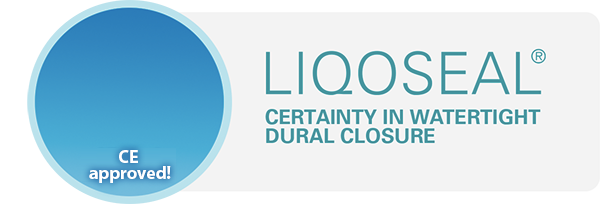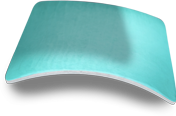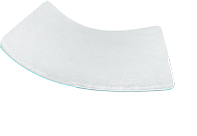Polyganics’ “STOP NEUROMA” Study Interim Data Shows Reduction in Pain
- NEUROCAP® 3-month interim data show an average pain reduction of 84%
- Final patient recruited in “STOP NEUROMA” clinical study, full data due to be reported by Q3 2018.
Groningen, The Netherlands 16 February 2017 – Polyganics, a privately held medical technology company, announced today that interim results show a sharp improvement in pain reduction observed across patients currently enrolled within the “STOP NEUROMA” study.
Enrolment was recently completed for the European “STOP NEUROMA” (Surgical Treatment Of symPtomatic Neuroma) which was designed to gather evidence for the long-term effectiveness of NEUROCAP® in the reduction of painful neuroma formation. The patients that have reached the 3 month endpoint show an average pain reduction of 84% on the Visual Analogue Scale (VAS), where each patient reports a score between 0 and 100 for the experienced pain. The first patients that reached the 12 month endpoint show that the pain relief is maintained together with a significant improvement in daily functioning and quality of life.
Polyganics’ unique proprietary technology NEUROCAP® is a transparent tubular device with a sealed end, a first-in-kind transparent nerve capping device that combines synthetic and bioresorbable qualities. NEUROCAP® is currently the only approved dedicated device for the surgical management of symptomatic neuromas.
Mariëtta Bertleff, MD PhD, Principal Investigator of the STOP NEUROMA trial said: “Symptomatic neuroma may develop after a nerve dissection or bruising of a nerve following any blunt or sharp trauma to a peripheral nerve, whether accidental or during planned surgery. Neuroma-induced neuropathic pain and morbidity seriously affect the patient’s daily life and socioeconomic functioning. Currently, there is no effective treatment for this extremely disabling condition which may affect over 300,000 patients worldwide. Several patients enrolled in the trial have undergone prior neuroma surgery without beneficial results. Our promising interim data could indicate a breakthrough in the treatment and future prevention of peripheral end-neuroma.”
Rudy Mareel, CEO of Polyganics, commented: “The STOP NEUROMA study was designed to provide surgeons with clinical evidence about NEUROCAP®’s benefits in the much needed management of symptomatic neuroma pain. Over 12 months, the interim data shows the effectiveness of NEUROCAP® in terms of reducing pain symptoms, improving patients’ daily life and functioning. We are confident that our first-in-kind device can be used in prevention of neuroma pain in the long term, following amputations or accidental damage.”
Please click here for more information about NEUROCAP®.
Notes to Editors
About NEUROCAP®
NEUROCAP® is intended to protect a peripheral nerve end and to separate the nerve from surrounding environment to reduce the development of a symptomatic end-neuroma. NEUROCAP® is a tubular device with one open end and one closed end. Dislocation of the nerve stump is prevented by suturing the nerve end into the cap. A hole at the sealed end of the tube allows easy fixation of the nerve stump with a suture to the surrounding tissue. This allows an effective capping technique without the necessity of drilling a hole into bones, or sacrificing other tissue.
About the STOP NEUROMA study
To examine the effectiveness of NEUROCAP®, Polyganics is working with several European hospitals in an open non-randomized clinical investigation (STOP NEUROMA study: Surgical Treatment Of symPtomatic Neuroma), which has recruited 10 patients. The study has been designed to obtain data on the clinical performance of NEUROCAP®’s ability to isolate the nerve end, and its effectiveness in both reducing pain from the symptomatic neuroma and prevention of its reoccurrence. For more information on the STOP NEUROMA study visit www.clinicaltrials.gov (identifier: NCT02528266).
About Neuromas
A neuroma is a painful condition, also referred to as a “pinched nerve” or a nerve tumor. It is a benign growth of nerve tissue. It brings on pain, a burning sensation, tingling, or numbness. Approximately 3-5% of all patients involved in peripheral nerve injury develop a symptomatic neuroma. In the US alone there are approximately 600,000 nerve repair procedures per year. It is estimated that around 185,000 persons in the US undergo amputations of a limb each year of which around 20% will develop symptomatic neuromas. NEUROCAP® is intended to be used for neuromas that occur after nerve repair and for amputation stump neuromas.
About Polyganics
Polyganics is a medical technology company with multiple versatile polymer platforms. The company develops and manufactures innovative bioresorbable medical devices that facilitate tissue repair and regeneration. Commercialization is performed through a worldwide distributor network.
Polyganics’ portfolio includes products developed in-house and in collaboration with leading medical technology companies and academic centers of excellence. In the Peripheral Nerve Repair (PNR) and neurosurgery field, the portfolio includes three marketed products: VIVOSORB® for minimizing unwanted tissue adhesions after surgery; NEUROLAC® for supporting PNR following surgery of the extremities; and NEUROCAP® for the management of symptomatic neuromas. Products in development include a sealant for the dural membrane, for use post brain surgery.
In 2014, Polyganics sold its Ear, Nose & Throat (ENT) surgery business unit (the NASOPORE® product family including HEMOPORE®, SINUPORE® and OTOPORE®) to US Company Stryker, one of the world’s leading medical technology companies. NASOPORE®, a reliable, easy-to-use, nasal wound care dressing made of biodegradable foam, has been used in over 3.5 million procedures globally.
Polyganics is profitable and privately held. The Company is based in Groningen, The Netherlands, a center of biomedical engineering excellence, in an ISO 13485-certified manufacturing facility. The Company’s polymer platform technologies are protected by a broad portfolio of patents and its products have received clearance from the US FDA, CE-approval, and approval from CFDA and other international authorities.
For more information visit: www.polyganics.com




